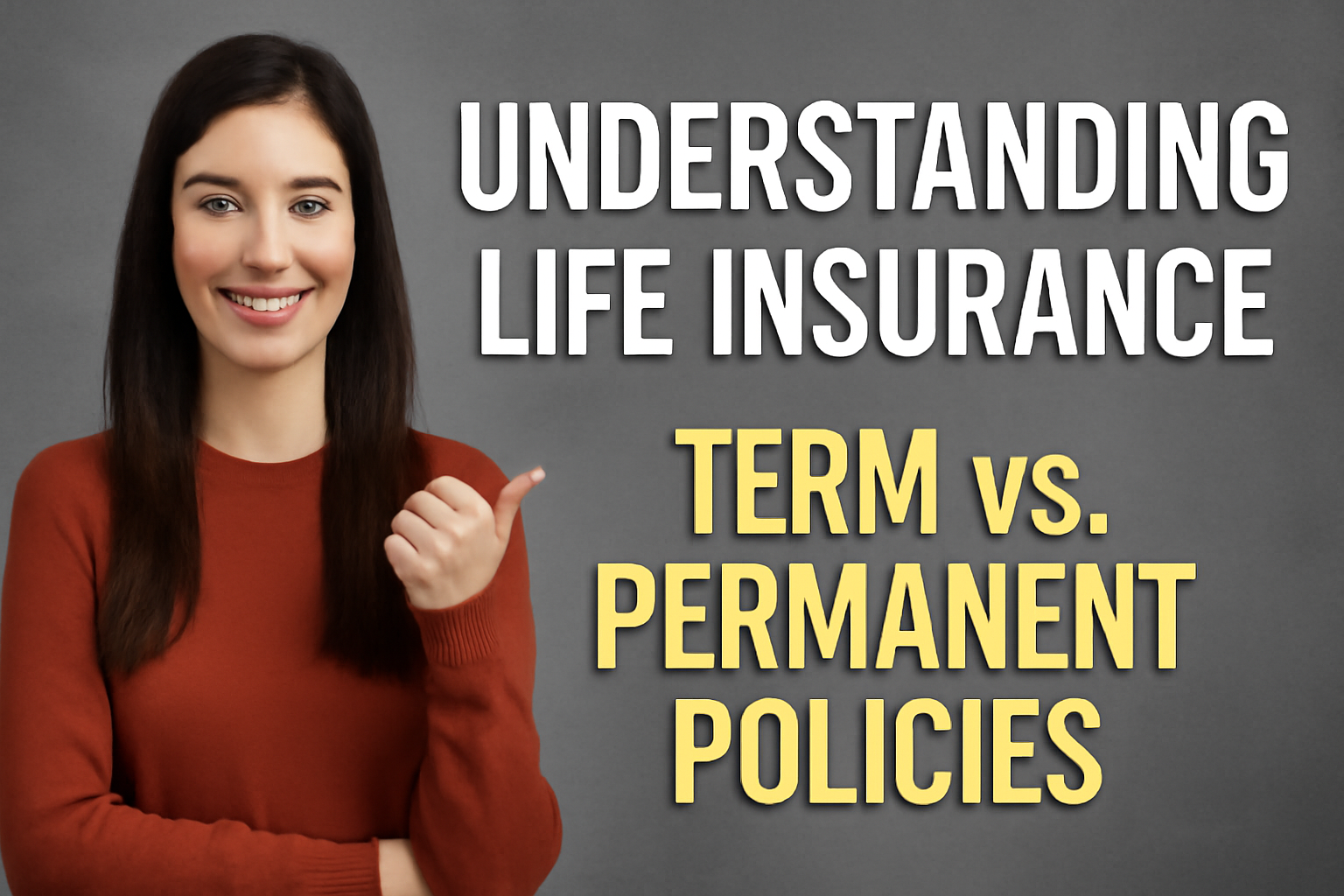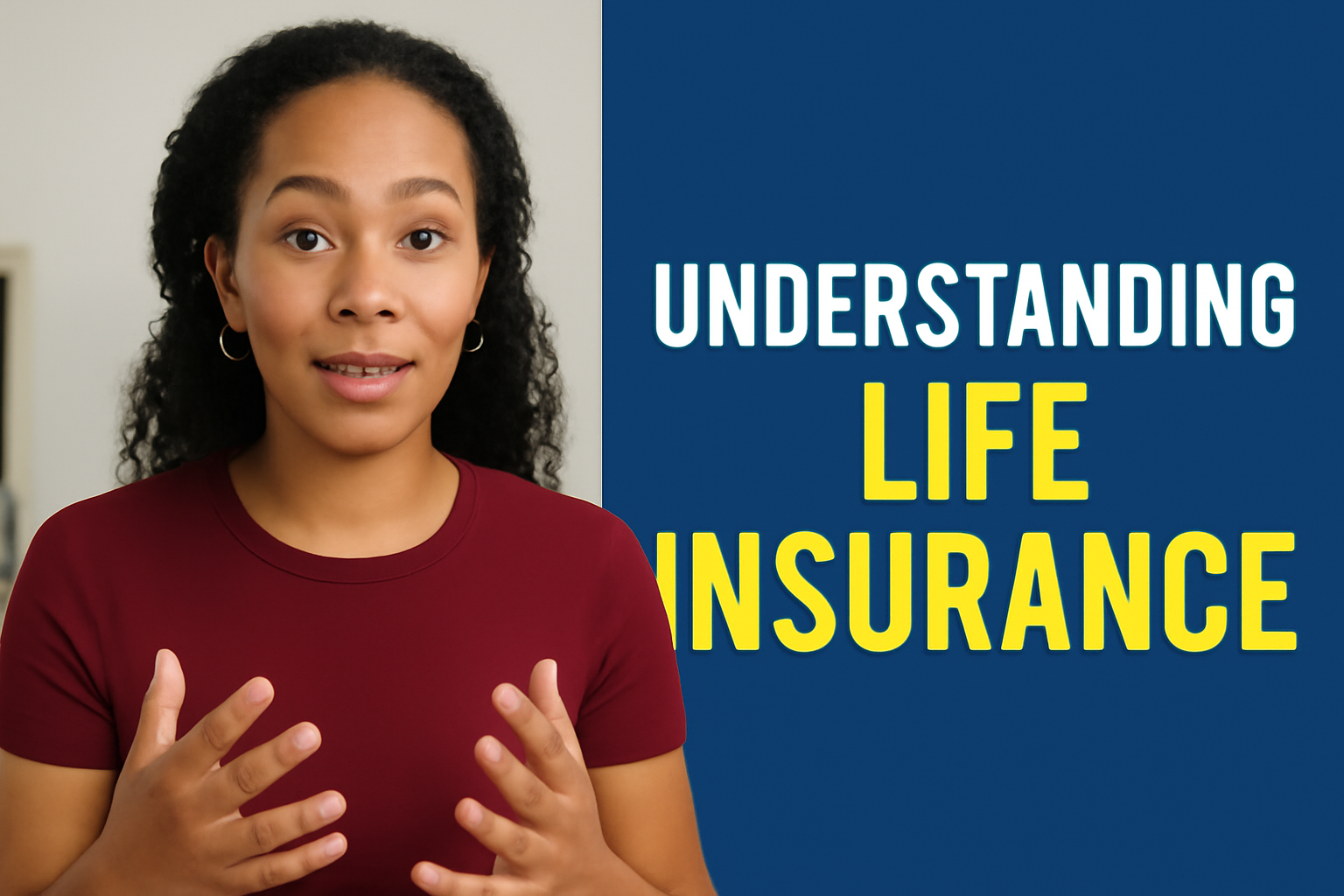Introduction: Why Life Insurance Matters
What’s up everyone! I’m Rose, and today I want to talk to you about life insurance. The reason I’m making this video now is because last year, I actually got my own life insurance policy, and I was just blown away by all the cool things you can do with it. The peace of mind it affords me, and most importantly, the tax-free wealth-building opportunity it provides that most people don’t know about. So, in this video, I want to educate you on all things life insurance so you can decide whether you should get one—and I think you should—and if so, which policy is best for you and how to think through this decision.
What is Life Insurance?
First, let’s talk about what life insurance is. Simply put, it’s insurance that will pay out money if you die or something happens to you, and it will go to a beneficiary. If you take out a life insurance policy, you would be the insured, and then your kids, parents, siblings, or someone else in your life would be the beneficiary.
Who Needs Life Insurance?
Life insurance is absolutely necessary if you have dependents, most commonly children. If you have young children under the age of 18, you absolutely need to have life insurance. What would happen if something were to happen to you and they are left without any source of income or someone to provide for them? So, if you have dependents, whether they’re kids or elderly parents, you absolutely need to get life insurance.
Types of Life Insurance: Term vs. Permanent
There are two main types of life insurance: term insurance and permanent insurance.
- Term Insurance: This type is simple—it covers you for a set period, usually 20 years. After that period, the coverage ends, and all the money you paid for that insurance is gone. Term insurance is extremely cheap and can provide you with coverage for a fraction of the cost of permanent insurance.
- Permanent Insurance: This is the opposite of term insurance. Permanent insurance never expires, and the death benefit will be paid out whenever you pass away. There are two types of permanent insurance: Indexed Universal Life (IUL) and Whole Life policies.
Renting vs. Buying Insurance: A Simple Analogy
To understand the difference between term and permanent insurance, think of it as renting a home versus buying one. Renting is cheaper, but when you move out, you don’t have anything to show for it. With permanent insurance, it’s like buying a home—while you’re paying for insurance, you’re also building equity.
The Power of Permanent Insurance
One of the coolest things about permanent life insurance is that there are other ways to access the money that’s building up in the policy. You can borrow against the cash value or even withdraw it, kind of like using a savings account. The money you accumulate in permanent life insurance is tax-free, which makes it similar to a Roth IRA.
Which Type of Life Insurance is Right for You?
If you have loved ones who are dependent on you, term life insurance is a non-negotiable necessity. If you have a comfortable income and want to build tax-free wealth, permanent insurance is a great option.
When is the Right Time to Get Life Insurance?
If you’re living paycheck to paycheck and don’t have extra money to invest, then permanent life insurance may not be right for you yet. It’s important to have an emergency fund, max out retirement accounts, and eliminate debt before considering permanent life insurance. Starting earlier in life is crucial because the younger you are, the cheaper your premiums will be.
How to Choose a Good Life Insurance Policy
When selecting a policy, always go with a reputable, mutually owned insurance company. Look for companies that have a strong track record and those that are dedicated to their policyholders rather than outside shareholders. Also, make sure your insurance agent is independent and will assess your needs based on your situation, not just push a specific product.
Conclusion: Life Insurance as a Financial Tool
In conclusion, if you are looking for coverage, term life insurance is the way to go. If you want to build wealth and save on taxes, permanent life insurance is the better option. If you’re financially ready, getting it earlier in life allows you to take full advantage of the tax-free benefits and compounding growth. And always ensure you’re choosing the right policy for your needs.
Final Thoughts
I hope this video was helpful, and I encourage you to look into life insurance. Whether you’re looking for coverage or a wealth-building tool, it’s crucial to make an informed decision. If you’re ready to explore your options, I highly recommend speaking with an independent, trustworthy insurance agent.



